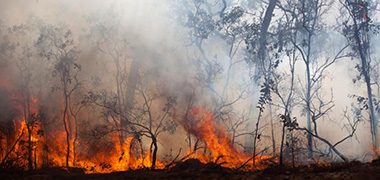
This role has a moderate level of AI exposure. AI can enhance efficiency for some tasks, but this job still relies on human skills and decision-making.
Explore all careersAn Earth Scientist studies the Earth's physical properties and processes, analysing data and collaborating with others to address environmental challenges.
Get qualified to work as an Earth Scientist with a course recognised across Australia. Speak to a training provider to learn more.






Browse occupations related to Earth Scientist



If you’re looking to pursue a rewarding career in the Earth Science field, exploring the available Earth Scientist courses in Victoria is a great starting point. These courses will equip you with the knowledge and skills needed to thrive as an Earth Scientist in various settings across Victoria. Whether you're inspired by the stunning landscapes of the Great Ocean Road or the geological wonders of the Grampians, a career in Earth Science offers many opportunities to make a difference to our understanding of the planet.
Studying Earth Science not only opens doors to becoming an Earth Scientist, but it also allows you to explore related job roles that might pique your interest. For instance, consider the pathway to becoming a Geophysicist or a Hydrologist, where you can delve into the physical properties and processes of the Earth and its waters. Victoria’s rich natural resources and diverse ecosystems provide the perfect backdrop for these exciting roles.
If you have a passion for studying historical life on Earth, you might be interested in becoming a Palaeontologist. By pursuing courses tailored for Earth Scientists, you will also gain insights into related fields such as geology and geochemistry. As a future Geologist or Geochemist, you will be at the forefront of research that contributes to sustainable resource management, especially crucial within Victoria's unique geological setting.
Leveraging technology can also play a significant role in the field of Earth Sciences. Consider courses that prepare you for a position as a GIS Specialist, where you’ll use geographic information systems to analyse and interpret spatial data related to the Earth. This skill is increasingly important as Australia focuses on environmental sustainability and effective land use strategies in urban areas like Melbourne and beyond.
In summary, enrolling in Earth Scientist courses in Victoria is the first step towards a fulfilling career aiding in the understanding and preservation of our planet. With various pathways available, from becoming a Geoscientist to a Physical Scientist, your opportunities are vast. So, take the plunge and start exploring your options today—your future in Earth Science awaits!